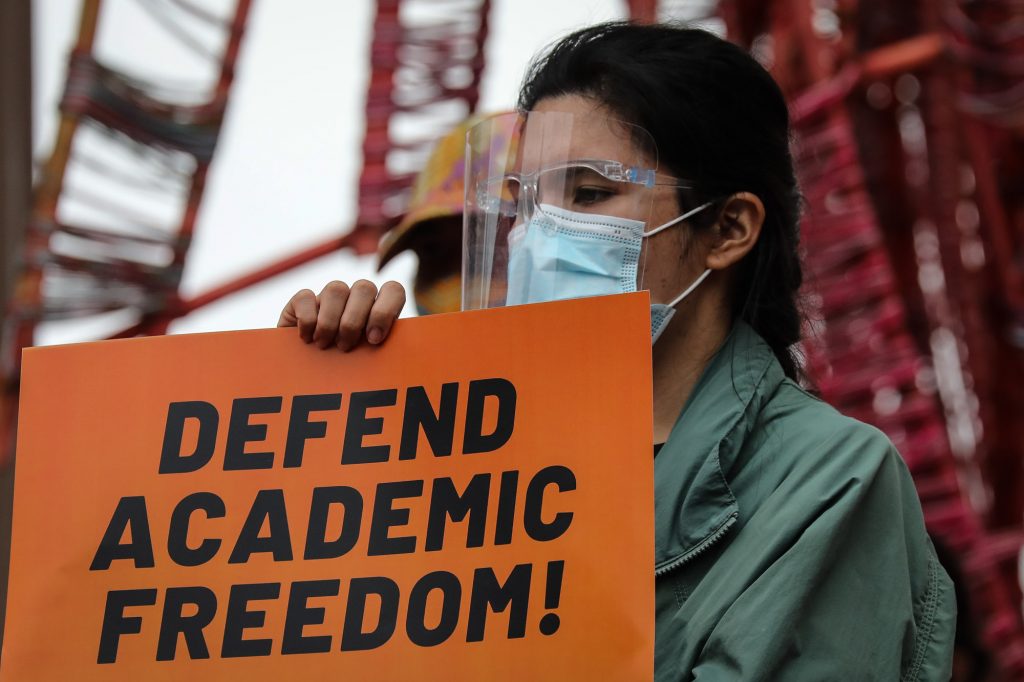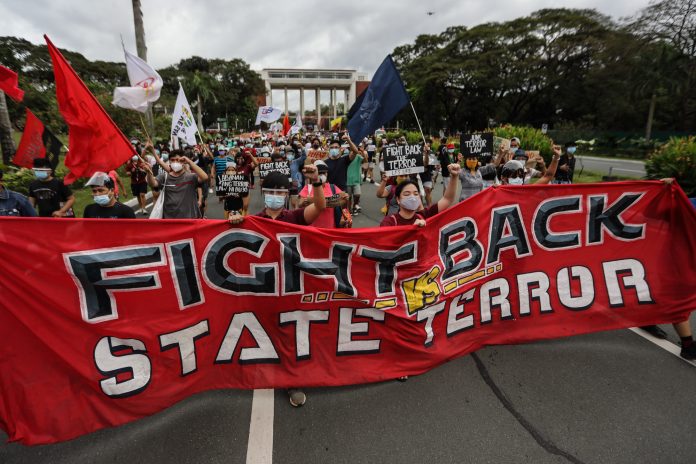A group of Christian students denounced the decision of the country’s military establishment to end a three-decade agreement with the University of the Philippines (UP) that prohibits soldiers and policemen from entering university campuses without notifying school officials.
The Student Christian Movement of the Philippines (SCMP) said the abolition of the deal is a “suitable and a fitting tactic” for the government to implement the controversial anti-terrorism law “to roll out without meeting student resistance.”
Human rights groups and opposition activists have questioned the legality of the country’s Anti-Terrorism Act of 2020 before the Supreme Court. The new law seeks the detention of suspected terrorists for up to 24 days with no warrant of arrest.
It also allows the police or the military to conduct 60-day surveillance with an allowable 30-day extension on suspected terrorists and imposes a 12-year jail term on a person who voluntarily or knowingly joins a terrorist organization.
The Christian students group said the abrogation of the accord between the Department of National Defense (DND) and the University of the Philippines (DND-UP Accord) “will allow the crucifixion of the studentry” who are tagged as members of the communist underground movement.
In a statement, the DND said the decision to end the deal was made because “recent events undeniably show that a number of UP students have been identified as members of the Communist Party of the Philippines/New People’s Army.”
Eyti Banico, head of SCMP in the university, described the government decision as an “active effort of the state to once again wage war against the Filipino youth,” saying that “now more than ever, the [deal] is much needed” because of “heightened red-tagging.”
The deal was signed in 1989 to restrict the Armed Forces of the Philippines and the Philippine National Police from entering UP premises after a series of abductions of students allegedly by state forces in the 1970s.
As early as 1982, the government under former strongman Ferdinand Marcos, a UP alumnus, entered into an agreement with student leaders to protect the autonomy of the university from military intervention, especially during protest rallies.
“We fought hard from 1977-1982 for what we called democratic reform movement in campuses nationwide,” recalled Sonia Soto, former leader of the League of Filipino Students, who negotiated the deal with then Defense Secretary Juan Ponce Enrile.
“Many of us were arrested and detained in the process of organizing synchronized nationwide boycott of classes during that period to press government to restore student councils, student papers, dismantle military and police outpost inside and in front or near campuses,” she said.
“Forty years ago we made a stand. Today it is the turn of the young [scholars] to defend their institution,” Soto said in a statement.

Opposition politicians and activist groups also denounced the DND decision, saying the abrogation of the deal is aimed to silence the government critics.
“This is neither a difficult nor onerous rule… Clearly, then, this is not a practical gesture, but a symbolic one. One designed to sow fear. One designed to discourage dissent. One designed to silence criticism,” said Leni Robredo, the country’s vice president and leader of the political opposition.
Danilo Concepcion, UP president, appealed to the Defense department to reconsider the decision.
“I must express our grave concern over this abrogation, as it is totally unnecessary and unwarranted, and may result in worsening rather than improving relations between our institutions, and detract from our common desire for peace, justice, and freedom in our society,” read a statement from Concepcion.
Defense Secretary Delfin Lorenzana justified the decision, claiming the deal accorded to the university out of courtesy is now obsolete. He said there is a need to protect the majority of Filipinos against a university that has become a “breeding ground” of groups with extremist beliefs.
“The country’s premier state university has become a safe haven for enemies of the state,” said Lorenzana. “The Department of National Defense will neither renege nor shirk on its duty to protect the rights of the majority,” he added.
He said the government “will not tolerate those who will violate the laws of the land in the guise of lawful public dissent, free assembly, and free speech.”
In a letter made public on Monday, January 18, the DND informed university officials that it is ending the 1989 accord as of Jan. 15, 2021, citing “clandestine recruitment” of students in communist organizations. The letter, however, said that no military nor police personnel would be stationed inside campuses.









